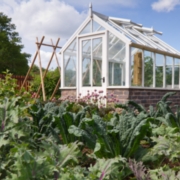A lot to consider with the state of allotments
The briefing contains the most up to date information on the state of the UK’s local authority Allotment services as provided by the managers and officers delivering these services. In total, 140 responses were received from local authorities throughout the UK.
Key findings include:
- Direct provision by the council for additional plots has increased significantly from 59% in 2017 to over 78% in 2018.
- 38% of respondents state that they will be continuing to increase allotment costs over the next five years and a further 30% replied that they were currently reviewing allotment costs.
- Only 32% reported that the provision of allotments would become cost neutral as a result of their charges which is a fall of 4% on 2017 figures. So it appears, despite price increase to allotment holders, costs of service provision are increasing faster.
- 67% said that they would still need to subsidise the cost of allotment provision, which is an increase of 3%. Only 1% said they would make a profit.
- Many allotment sites are now moving to self-management models, often with the continuing support of the local authority. In this way allotment holders can not only ensure what finance is available is used to meet the known needs of the site, but they are also able to apply for funding which is not available to local authorities.
The value of allotments is widely recognised across a number of fronts. From a social perspective, allotments allow all sectors of the local community to engage in a common interest where skills and knowledge can be exchanged and lasting friendships forged.
From an environmental perspective, they help to promote biodiversity, reduce air miles re local food production, provide valuable soakaways in times of heavy rain and can help to arrest the worrying decline in pollinators. Furthermore, allotments can go a long way to helping the Government realise its 25-year Environment Plan; encouraging people to use resources from nature more sustainably and efficiently.
It is unlikely that local authorities will ever make high levels of income from allotments. However, when one considers the multiple benefits they bring, it should come as no surprise they are considered by councils across the UK as being a key community asset.
To view the full briefing, click here.
On the wider issue of grounds maintenance and parks management APSE’s Refuse, Recycling, Street scene, Grounds and Parks Seminar is being held at The Belfry in Nottingham on the 18/19th October 2018 - Click here to view programme and book .
One of the presentations at the seminar will be discussing the proposal and actions already taken on promoting food growing in parks, which may be of interest to those officers responsible for allotments and their provision.


.png)



.png)